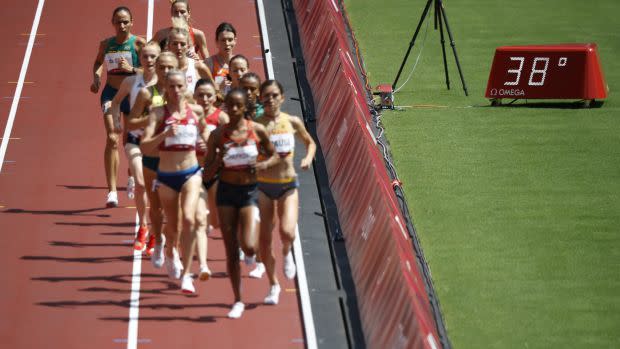How Tokyo’s temperatures compare with past summer Olympics

With temperatures creeping up in Tokyo this week, athletes might not be the only ones setting Olympic records.
Around midday on Aug. 5, just days before closing ceremonies, highs in Tokyo are expected to reach 35˚C (95˚F). With nearly 50% humidity, that could feel like 39˚C (102˚F). Those are tough conditions for doing anything, let alone pushing one’s body to its physical extreme.
As of Aug.1, average daily temperatures in Tokyo were on par with games in Athens and Atlanta. Athens saw the hottest summer Olympics to date, when temperatures reached 34.2˚C (93.6˚F). If the forecast is correct, Tokyo may surpass that record on Thursday.
Even if no record is set, high humidity, which makes temperatures feel hotter and hinders the body's ability to cool down, means these Games have likely been historically tough on athletes.
"When you take into account not only the temperature, but also humidity, I would say that a Tokyo Summer is the worst in the history of Olympics," Makoto Yokohari, professor of environment and urban planning at the University of Tokyo, told CNN.
Any heat record set this week may not last long. Climate change means temperatures are increasing at such a rate that by 2085 there will only be 33 cities remaining with temperatures suitable to host the summer Olympics, according to a 2016 study published in the Lancet that looked at Northern hemisphere locations.
Sign up for the Quartz Daily Brief, our free daily newsletter with the world’s most important and interesting news.
More stories from Quartz:
Being your authentic self is actually not ideal for creativity
The world has 193 countries, so why are there 205 teams in the Olympics?
